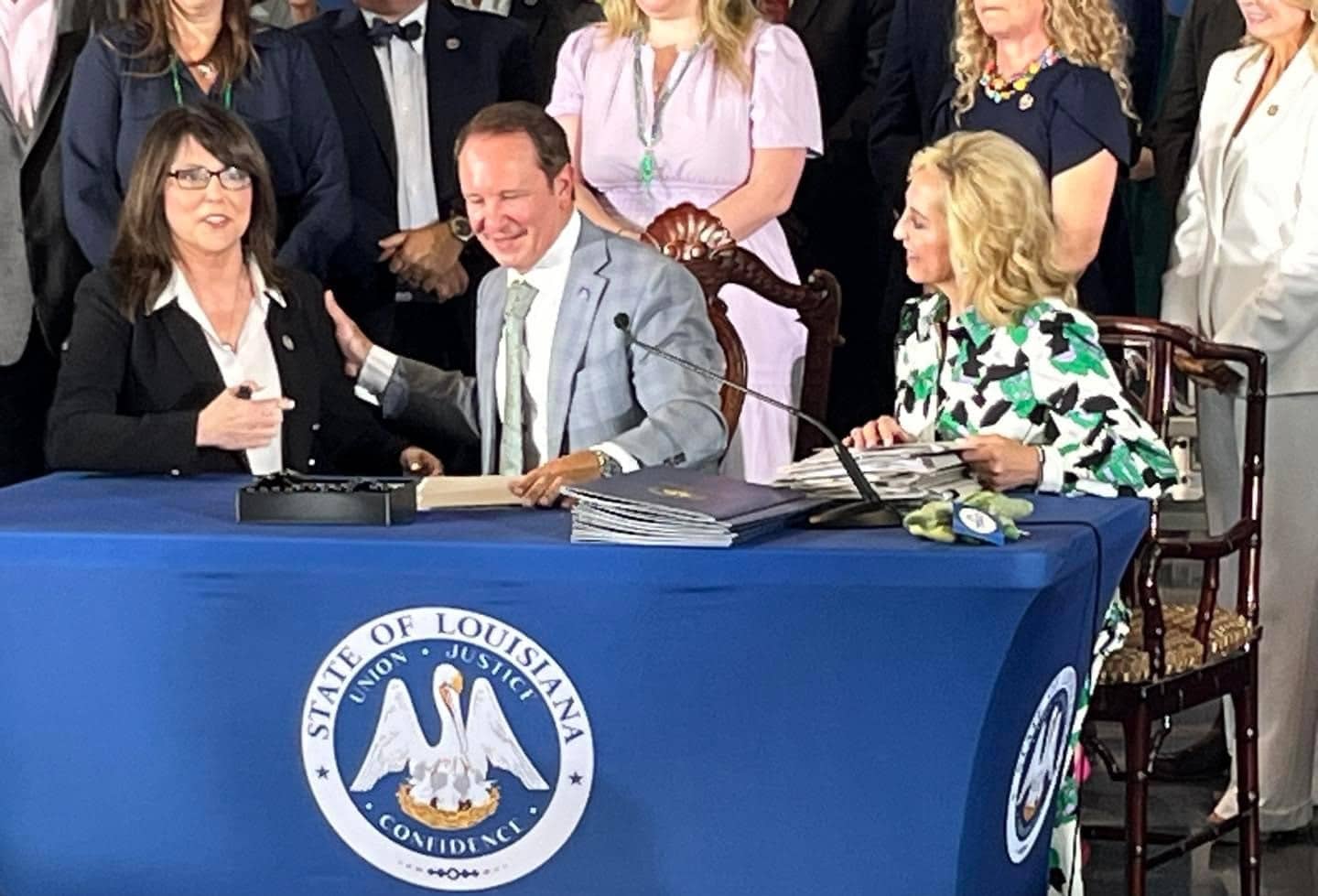By Will Hall, Baptist Message executive editor
TEN COMMANDMENTS
The Ten Commandments law, Act 676, championed by Rep. Dodie Horton, a member with First Baptist Church, Haughton, gained the most press around the country for its first-in-the-nation requirement to restore, after about a 50-year absence, the Ten Commandments to every publicly funded classroom, kindergarten through college, in Louisiana.
The law uses a version of the Ten Commandments that is adapted from the King James Bible, and it requires the 11 inches by 14 inches display to include a “context statement” about “The History of the Ten Commandments in American Public Education.”
Already, four liberal political activist groups have joined litigation against the law, but Horton said the Ten Commandments are in the core of our nation’s laws and that their historical significance has been acknowledged in multiple U.S. Supreme Court decisions, which were used to craft the law in anticipation that bad actors would try to challenge it in the courts.
The law asks for the displays to be paid for by public donations, and proponents estimate that about $100,000 in gifts are needed to outfit all Louisiana schools.
SCHOOL CHAPLAINS
Act 293, authored by Sen. Mark Abraham, a member with Trinity Baptist Church, Lake Charles, did not attract much public attention, but could be significant in its impact on schools. This measure allows “Each city, parish, or other local public school board” to “employ or accept as a volunteer a certified chaplain to provide support, services and programs for students, staff, and parents.”
Abraham testified that 15 states already were engaged in similar initiatives and that two other states had passed similar legislation to begin soon, noting that there had been “a lot of success” where volunteer chaplains had been used in schools.
“In these 30,000 schools, teen pregnancies are drastically down; suicides are zero; and it [chaplain program] has been helping with mental illness – not only for the students, but also for the teachers,” Abraham told the state Senate Education Committee, March 13. “There has been less teacher attrition because of chaplains in these schools.”
The law requires state and federal background checks of candidates; prohibits sex offenders or child predators from serving; and provides immunity to chaplains except for any action or statement that “was maliciously, willfully, and deliberately intended to cause harm to harass or intimidate those seeking support, services and programs.”
Louisiana Baptists already are discussing the possibility of holding chaplain certification sessions across the state in conjunction with the North American Mission Board of the Southern Baptist Convention.
PARENTS’ RIGHTS
Horton and Rep. Raymond Crews, a member with First Baptist Church, Bossier City, successfully pushed through Acts 681 and 680, respectively. The first prohibits school
employees from discussing LGBT matters during instructional time. The second, officially known as “The Given Name Act,” requires schools to use an individual’s legal name or a derivative of it and the pronouns that are consistent with a person’s biological sex.
Opponents tried to tag the measures as “don’t say gay” bills. But parents can choose to let their children be called by something other than their legal given name and pronouns not consistent with their biological sex. Likewise, parents may permit teachers to talk with their children about LGBT issues outside of instructional time. However, school personnel cannot introduce LGBT topics or attempt to transition a child behind parents’ backs.
Last year, Horton and Crews offered similar bills and garnered supermajority votes in both chambers during the regular legislative session. However, both were vetoed by then-Gov. John Bel Edwards. During the subsequent veto override session, each was one vote shy of a two-thirds majority that would have made both laws.
PROTECTING MINORS
Rep. Kim Carver, a deacon with First Baptist Church, Covington, pushed through two key protections for children:
— Act 656 bans social media companies from collecting data that can used to target advertising at minors. During committee testimony, Carver said that “manipulative targeted advertising to children generated an estimated $11 billion in advertising revenue in just one year.” Importantly, his law stops any “social media platform with more than one million account holders globally that is operating in this state … from selling sensitive personal data of a minor account holder.”
— Meanwhile, Act 216 requires all mandatory reporters (“any public or private teacher, teacher’s aide, instructional aide, school principal, school staff member, school resource officer, bus driver, coach, professor, technical or vocational instructor, technical or vocational school staff member, college or university administrator, college or university staff member, social worker, probation officer, foster home parent, group home or other child care institutional staff member, personnel of residential home facilities, a licensed or unlicensed day care provider, or any individual who provides such these services to a child in a voluntary or professional capacity”) “to be offered training on the statutory requirements and responsibility of reporting child abuse and neglect.”
‘WOMAN’ DEFINED
The “Women’s Safety and Protection Act” removes any confusion about the definition of a woman and a man.
Signed into law as Act 436, the statute authored by Rep. Roger Wilder, a member with Hebron Baptist Church, Denham Springs, elucidates the biological distinctions between males and females to establish key protections for girls and women.
The law requires facilities that are designated for biological females (dormitories, restrooms, changing rooms, domestic violence shelters, juvenile detention and correctional centers) to remain sex specific as a safeguard against sexual assault, violence and harassment by biological males.




